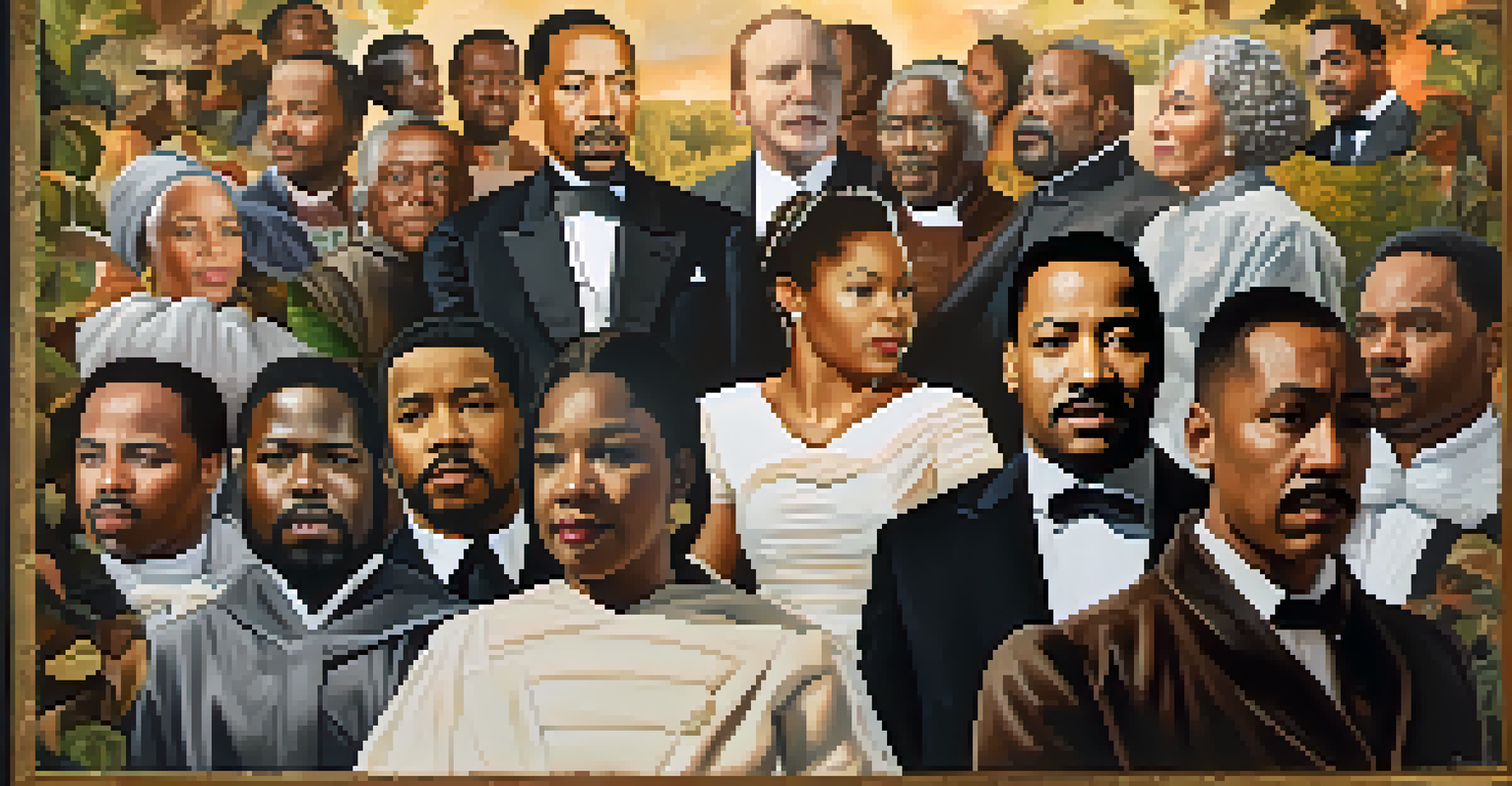Quotes in Context: Analyzing Their Situational Importance

Defining Quotes and Their Contextual Relevance
Quotes are often snippets of speech or writing that encapsulate a thought or sentiment. However, their power truly shines when they are placed within the right context. Without context, a quote can be misunderstood or misinterpreted, leading to confusion about its intended meaning.
The limits of my language mean the limits of my world.
Imagine reading a famous quote about freedom without knowing the historical events surrounding it. The significance would be lost, and the emotional weight diminished. Context provides the backdrop that enhances a quote's impact, allowing us to grasp its full meaning.
In this way, context acts like a stage for a play—setting up the characters, themes, and emotions that enrich the dialogue. Recognizing the situational importance of quotes can transform our understanding of language and communication.
Historical Context: The Key to Deeper Understanding
Historical context refers to the time period and environment in which a quote was made. For instance, consider Martin Luther King Jr.'s 'I Have a Dream' speech. Understanding the Civil Rights Movement provides clarity on the urgency and passion behind his words.

If we merely recite King's quote without acknowledging the struggles of that era, we miss out on the profound hope and determination it represents. History breathes life into quotes, giving them a sense of urgency and relevance.
Context Enhances Quote Meaning
Quotes gain power and clarity when placed within the appropriate historical, cultural, personal, and situational contexts.
By exploring the historical backdrop, we can appreciate how quotes resonate across generations, inspiring action and reflection. This exploration can lead to a richer appreciation of literature, speeches, and everyday conversations.
Cultural Context: Influencing Interpretation
Cultural context shapes how we interpret quotes, as it encompasses the beliefs, values, and norms of a society. A quote that resonates in one culture may fall flat in another due to differing social dynamics. This highlights the importance of considering cultural nuances.
In the midst of chaos, there is also opportunity.
For example, a proverb from one culture may carry wisdom that seems foreign to another. By recognizing the cultural lens through which a quote is viewed, we can gain insights into the shared experiences of different communities.
Ultimately, cultural context enriches our understanding of quotes, allowing us to connect with diverse perspectives. This connection fosters empathy and appreciation for the variety of human expression.
Personal Context: The Role of Individual Experience
Personal context refers to an individual's background, experiences, and emotions that influence their interpretation of a quote. A quote that inspires one person might evoke a different reaction in someone else based on their life experiences. This subjectivity is what makes quotes so powerful.
For instance, a quote about resilience may resonate deeply with someone who has faced significant challenges, while another may find it less impactful if they haven't encountered similar struggles. This personal connection can transform a simple phrase into a source of motivation.
Cultural Nuances Affect Interpretations
Understanding cultural context is essential, as it shapes how quotes resonate across different societies and experiences.
Recognizing how personal context shapes our understanding encourages us to share our unique interpretations, fostering deeper conversations and connections with others. It reminds us that quotes can serve as mirrors reflecting our own journeys.
Situational Context: Timing and Relevance Matter
Situational context refers to the specific circumstances surrounding the use of a quote. The timing of when a quote is shared can significantly impact its meaning and relevance. A quote that may seem trivial in one moment could take on profound significance in another.
For example, during a time of crisis, a quote about hope can serve as a rallying cry, providing comfort and inspiration. Conversely, the same quote may feel out of place in a lighthearted conversation. Understanding situational context allows us to choose quotes that resonate with the moment.
This aspect of context emphasizes the importance of being attuned to our surroundings and the emotions at play. Quotes can serve as powerful tools for connection, provided we are mindful of the situations in which we use them.
The Power of Quotes in Communication
Quotes have a unique ability to convey complex ideas succinctly, making them valuable in communication. When we use quotes in conversation or writing, we tap into established wisdom that can enhance our message. This can lead to greater engagement and understanding from our audience.
For example, using a well-known quote in a presentation can evoke shared knowledge, creating a bond with listeners. It also adds credibility to our points, as quotes often come from respected figures or texts. This shared language fosters a sense of connection and relatability.
Quotes Foster Deeper Connections
Analyzing quotes in their various contexts allows for richer discussions and personal connections, transforming them into sources of wisdom.
However, it's crucial to ensure that quotes are relevant and appropriate for the context. A carefully chosen quote can elevate our communication, while a poorly placed one can detract from our message. Thus, being intentional about our use of quotes is essential.
Analyzing Quotes for Greater Insight
To truly appreciate the power of quotes, we must analyze them in their various contexts. This involves considering historical, cultural, personal, and situational factors that influence their meaning. By delving into these aspects, we can uncover layers of significance that might otherwise go unnoticed.
For instance, dissecting a quote's language and phrasing can reveal the emotions and intentions behind the words. Engaging in discussions about quotes with others can also provide fresh perspectives, enriching our understanding and appreciation.

Ultimately, this analysis encourages us to think critically about the words we encounter daily. It invites us to explore the deeper meanings of quotes, transforming them from mere phrases into sources of wisdom and inspiration.